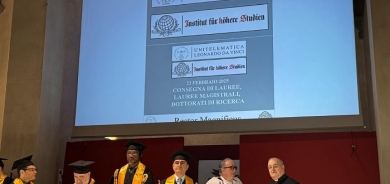Turkish Foreign Minister Hakan Fidan Wraps Up Successful U.S. Visit, Strengthening Bilateral Ties

Turkish Foreign Minister Hakan Fidan concluded a two-day visit to the United States on Friday, focused on bolstering the defense ties between the two nations within the framework of the U.S.-Turkey Strategic Mechanism. The Mechanism, established in April 2022 following discussions between U.S. President Joe Biden and Turkish President Recep Tayyip Erdogan, aims to enhance cooperation and address key global challenges.
During his visit, Fidan held crucial meetings with top U.S. officials, including National Security Advisor Jake Sullivan and Secretary of State Antony Blinken. He also engaged with members of the U.S. Congress, including Sen. Ben Cardin, Chairman of the Senate Foreign Relations Committee.
The primary objective of these discussions was to foster stronger defense cooperation, particularly in light of previous tensions stemming from Turkey's acquisition of the Russian S-400 air defense system, which strained relations with the U.S. The deal raised concerns among U.S. defense experts regarding the security of American-made aircraft in Turkish possession.
The visit comes amidst ongoing global crises, including Russia's aggression in Ukraine and the conflict between Israel and Hamas. Both Turkey and the U.S. have sought to improve relations following past disagreements, with efforts to align priorities as NATO allies and address challenges such as terrorism, including joint efforts against ISIS and the PKK.
Significantly, Fidan's visit followed the Turkish parliament's approval of Sweden's accession to NATO, a decision initially delayed due to concerns raised by Turkey. This development paved the way for the U.S. Senate's approval of Turkey's request to purchase F-16 fighter jets and modernization kits, signaling progress in bilateral defense cooperation.
In a joint statement issued after the meetings, both nations expressed a commitment to a positive bilateral agenda and cooperation on global challenges, notably condemning Russia's aggression in Ukraine. Turkey's role in facilitating Ukrainian grain exports and its commitment to mine countermeasure efforts were acknowledged and welcomed by the U.S.
However, differences remain, particularly regarding Turkey's stance on the Syrian Democratic Forces (SDF) and the conflict in Gaza. While Turkey emphasized the need for a quick cease-fire in Gaza, the U.S. prioritized ensuring terms that safeguard Israel's security.
Despite these disagreements, Fidan highlighted the achievements of the visit, including progress in defense procurement and a renewed focus on a positive bilateral agenda. Both sides expressed optimism about the potential for improved relations moving forward, signaling a willingness to overcome past challenges and forge a stronger partnership.
As Fidan summarized, the visit marks the beginning of a new chapter in U.S.-Turkey relations, characterized by a constructive approach and a shared commitment to addressing global challenges.












